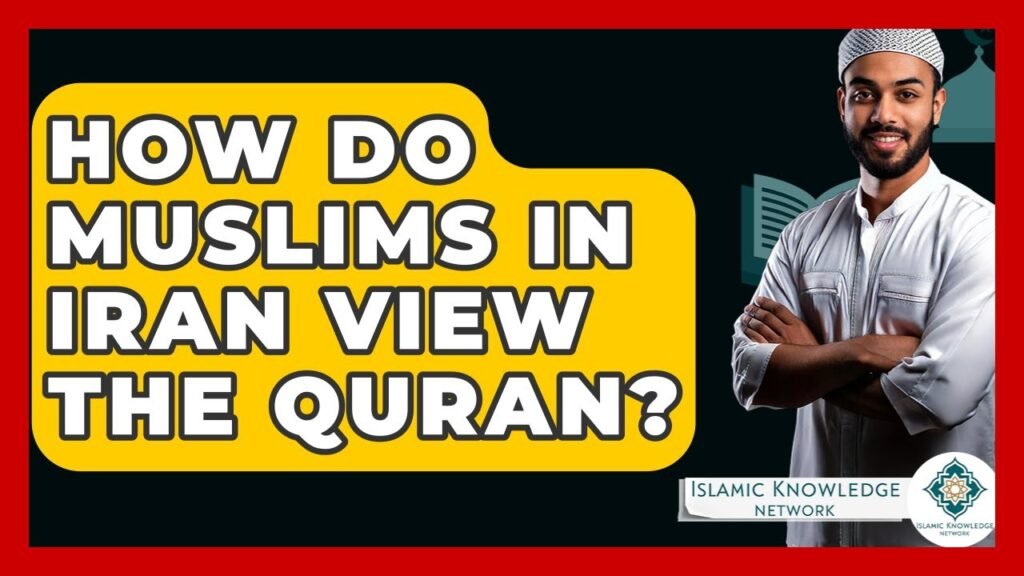You are here to read: How Do Muslims in Iran Interpret the Quran’s Teachings? – A Thoughtfully Written Guide Offering Spiritual Wisdom and Travel Advice for Every Pilgrim who is going on holy journey of Hajj or Umrah.
How Do Muslims In Iran View The Quran? – Islamic Knowledge Network
The Quran holds a profound significance in the lives of Muslims, serving as the foundational text of Islam and a comprehensive guide to faith, ethics, and personal conduct. In Iran, where the majority of the population identifies as Shia Muslims, the Quran is not just a religious text but a national symbol, intricately woven into the fabric of daily life and cultural identity. The Iranian approach to the Quran is characterized by its unique interpretations, historical context, and the role of Islamic scholarship, all of which contribute to how the Quran is integrated into both personal devotion and public life.
At Airlink Hajj and Umrah, we recognize the importance of understanding such perspectives, especially given the global pilgrimage to Islamic holy sites. Our blog offers valuable insights and updates related to Hajj and Umrah, helping devout Muslims to connect with their faith more deeply. By exploring how Iranians view the Quran, we not only enrich our understanding of Islam but also enhance our collective pilgrimage experience, ensuring that worshippers are informed and inspired as they embark on their spiritual journeys.
How Do Muslims in Iran Interpret the Quran’s Teachings?
Muslims in Iran interpret the Quran’s teachings through the lens of their rich cultural, historical, and political context. Predominantly adhering to Shia Islam, Iranian Muslims view the Quran not just as a spiritual guide but as a foundation for their societal values and ethics. Religious leaders, or Ayatollahs, often provide commentary (Tafsir) that emphasizes justice, community welfare, and the importance of following the Imams as spiritual leaders. This unique interpretation shapes public life, from governance to education.
Additionally, the Quran is central to daily rituals and practices in Iran. Whether in mosques or homes, recitation and memorization of its verses play a crucial role in communal and personal faith. This practice reinforces a collective identity and adherence to Islamic principles. Iranian Muslims navigate modern challenges by applying Quranic teachings to contemporary issues, advocating for social justice and ethical governance.
For those planning pilgrimage, our blog at airlinkhajjandumrah.com offers comprehensive updates and insights on Hajj and Umrah, ensuring that you can experience your spiritual journey with an understanding of the profound teachings of the Quran that resonate deeply within Iran. Embrace this religious exploration to enrich your personal faith and connection to the divine.
FAQ on How Do Muslims in Iran Interpret the Quran’s Teachings?
-
What are the main themes of the Quran that Iranian Muslims emphasize?
Iranian Muslims often focus on themes such as justice, compassion, and community welfare, highlighting social ethics and moral responsibilities.You're at the middle of this awesome post at AirlinkHajjandUmrah.com through: How Do Muslims in Iran Interpret the Quran’s Teachings?. Keep reading, it gets better!
-
How do historical and cultural contexts influence Quranic interpretation in Iran?
Historical events, such as the 1979 Iranian Revolution, and the rich Persian cultural heritage shape interpretations, often blending religious doctrine with national identity. -
What role do religious authorities play in interpreting the Quran in Iran?
Religious authorities, particularly the clergy and scholars from institutions like Qom, significantly influence interpretations and the application of Quranic teachings in society.
-
Are there different schools of thought within Islam that affect Quran interpretation in Iran?
Yes, Iran predominantly practices Shia Islam, which differs from Sunni interpretations in various theological and legal aspects, impacting how Quranic texts are understood and applied. - How do contemporary issues influence Quranic interpretation among Iranian Muslims?
Modern challenges, such as social justice, women’s rights, and political realities, prompt reinterpretations of Quranic teachings to address current societal needs and ensure relevance.
That wraps up How Do Muslims in Iran Interpret the Quran’s Teachings?. Thanks for sticking with us till here! Share this: How Do Muslims in Iran Interpret the Quran’s Teachings? with your friends.
Check our homepage at Air Link Hajj & Umrah for more awesome updates.
Some interesting posts are: 1: Umrah Mubarak, 2: When is Umrah closed 2026?, 3: When does Umrah start after Hajj 2026?
Mushu, an experienced Saudi Arabia traveler and writer, shares insightful tips and spiritual reflections to enhance Hajj and Umrah journeys for fellow pilgrims. He has been to Makkah and Madina from 2016 to 2023 many times and his posts will reflect this.







